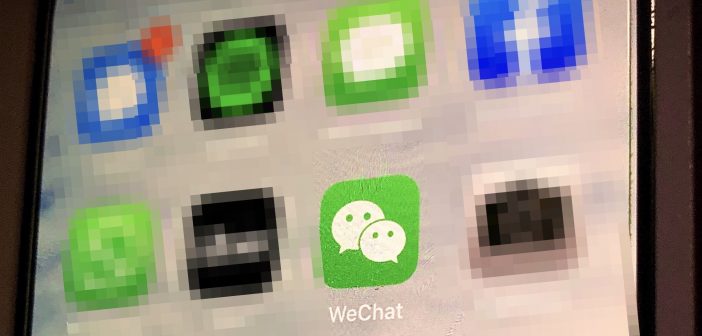A student protest against China’s persecution of Uighurs at a Howard County high school highlights the potential cybersecurity implications of Americans using Chinese social media apps, according to Wilson Center analyst.
Centennial High School, a public school in Ellicott City, Md., announced Tuesday the upcoming “Uighur Awareness Day,” an event in support of the ethnic minority Muslim group in northwest China.
The notice, which encouraged students to attend an information session and wear blue to protest the Chinese government’s “horrific campaign of repression” could cause offense to Chinese American parents at the school, which is 40% Asian American.
In China, WeChat is used for “everything,” said Robert Daly, director of the Wilson Center’s Kissinger Institute on China, during a press briefing at the think tank Tuesday morning. From messaging to paying bills to calling an Uber, WeChat is the state-monitored one-stop-shop.
Chinese Americans staying in touch with family members in China also frequent WeChat, Daly said, meaning the event was almost certainly mentioned in the app.
WeChat in the US is not censored, Daly clarified. “I test this with my son,” he laughed. “We send each other scandalous messages about [Chinese President] Xi Jin Ping all the time.”
However, most people in the US who use the app are registered in China in order to communicate with Chinese friends and family, Daly said. The app also stores individual profile data until a user requests that the information be removed, or deletes their account, according to WeChat’s official privacy policies.
While there is no evidence the data is being analyzed, it’s reasonable to conclude the Chinese government has millions of WeChat users’ data at its fingertips, ready for access and mining.
Inevitably, the Maryland high school’s Uighur spirit day will trigger unease in the school’s Chinese American parent community, and therefore WeChat community, Daly said.
Sure enough, hours after the original invitation, the school sent an updated version clarifying that the event was proposed by a Muslim student organization, not the school itself.
“I think for the first time in our history, we have a vital subset of the United States, in the Americans of Chinese origin, a highly accomplished, wealthy, technologically savvy group that’s making invaluable contributions to America on every front — I’ll say that right up front — whose major source, now, of information and communications is designed by, run by, potentially monitored by, a foreign power that we’ve identified as rival,” Daly said.
Framing and solving the cybersecurity issues of WeChat and other Chinese apps like Tik Tok will be difficult, Daly said.
“There’s a real danger of racial profiling,” Daly said. “It’s tricky. We haven’t faced it before.”
It seems sensible to turn to Congress for such a solution, yet “Congress can’t do much of anything,” said Jane Harman, former congresswoman and director, president and CEO of the Wilson Center.
In the past, Congress has required licensing and regulated foreign communication in the US, but Harman said she’s not sure if that’s possible now.
“I just think, if one side says purple, the other side says pink automatically,” Harman said.
One possibility is requiring tech companies to disclose the data they are storing, Harman said. Transparency bills have been proposed but none have passed.
Another option is leaning on existing anti-boycott laws, an approach Sen. Marco Rubio favors, Daly said.
“The anti-boycott laws prohibit any person, or US subsidiaries of Chinese companies in this case, from complying with foreign boycotts seeking to coerce US companies to conform with China’s government views,” Daly said.
The solution is not a catch-all, he explained, since it would be a challenge to write the law narrowly enough so it doesn’t slow down large data transmissions, yet defines “something as amorphous as influence.”
“But the question is only just beginning to be asked,” Daly said.



